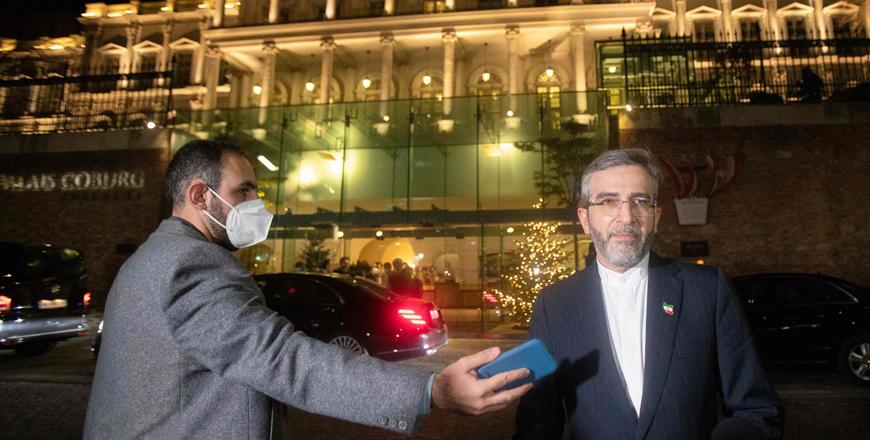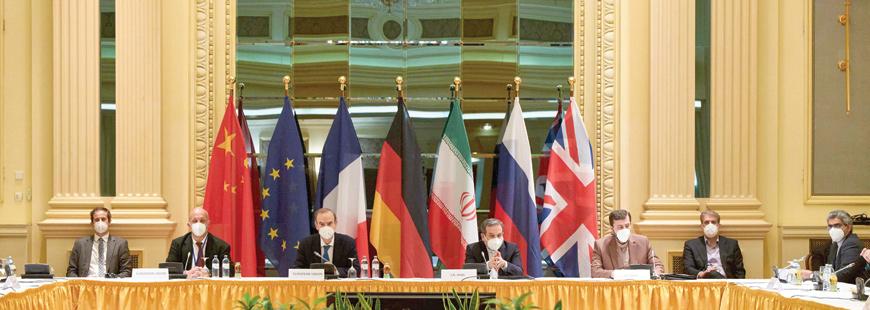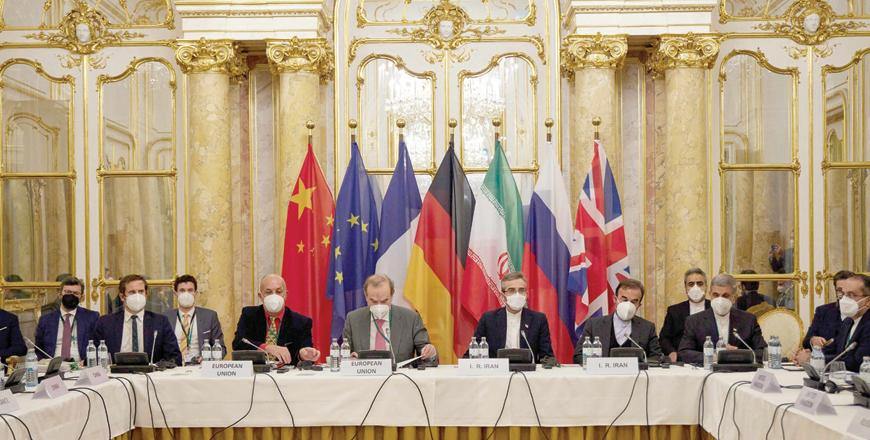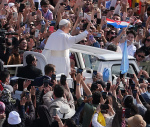You are here
Europeans stress 'urgency' as Iran nuclear talks resume
By AFP - Dec 28,2021 - Last updated at Dec 28,2021

Iran's chief nuclear negotiator Ali Bagheri Kani speaks to the press in front of the Palais Coburg, venue of the Joint Comprehensive Plan of Action (JCPOA) meeting that aims at reviving the Iran nuclear deal, in Vienna on Monday (AFP photo)
VIENNA — European negotiators stressed on Tuesday that talks to save the landmark Iran nuclear deal are "urgent", the day after discussions between world powers resumed in Vienna.
Negotiations to restore the 2015 agreement began earlier this year but stopped in June as Iran elected a new ultraconservative government. They resumed in late November with the latest round getting under way on Monday.
The aim is to bring back Washington, which left the deal in 2018, and curtail Tehran's nuclear activities, stepped up in response to the US withdrawal and reimposed sanctions.
"This negotiation is urgent... We are clear that we are nearing the point where Iran's escalation of its nuclear programme will have completely hollowed out the JCPoA," negotiators from Britain, France and Germany said in a statement, referring to the deal's official name by its acronym.
"That means we have weeks, not months, to conclude a deal before the JCPoA's core non-proliferation benefits are lost."
Besides the so-called E3 European countries, Iran, China and Russia are also taking part in the talks, while the United States is participating indirectly.
The 2015 deal offered Iran a lifting of economic sanctions in return for strict curbs on its nuclear programme aimed at ensuring it would not build an atomic bomb — an ambition Iran has always rejected.
A year after the US withdrawal and reimposition of sanctions, Iran in turn began to gradually abandon its commitments, including by stepping up its enrichment of uranium though it continues to deny that it wants to acquire a nuclear arsenal.
'Unprecedented' enrichment
On Saturday, Atomic Energy Organisation of Iran director Mohammad Eslami said Tehran had no plans to enrich uranium beyond 60 per cent, even if the Vienna talks fail.
Eslami said the enrichment levels were related to the needs of the country, in remarks published by the Russian news agency RIA Novosti.
In response, E3 negotiators said on Tuesday that 60 per cent enrichment was still "unprecedented for a state without nuclear weapons". Military-grade levels are around 90 per cent.
"Its increasing 60 per cent stockpile is bringing Iran significantly closer to having fissile material, which could be used for nuclear weapons," they said.
Iran's Foreign Minister Hossein Amir-Abdollahian was quoted by state news agency IRNA on Tuesday as saying the negotiations were "on a good track".
"With the goodwill and seriousness from the other parties, we can consider [reaching] a quick agreement in the near future," he said.
Moscow's ambassador to the UN in Vienna, Mikhail Ulyanov, said the working group on nuclear issues held a "useful meeting" on Tuesday, while lifting sanctions was also discussed informally.
"We observe indisputable progress," he wrote on Twitter.
EU diplomat Enrique Mora, who is chairing the talks, said on Monday that all sides were showing "a clear will to work towards the successful end" but that "very difficult" negotiations lay ahead.
Related Articles
VIENNA — The EU, Russia and Iran hailed progress at nuclear talks on Saturday as discussions resumed in Vienna following an attack on one of
VIENNA — Iran said nuclear talks that resumed in Vienna on Monday should focus on lifting sanctions on the Islamic republic and "guarantees"
TEHRAN — US steps on lifting sanctions are "good but not enough", Iran said Saturday, following Washington's announcement it was waivi
















